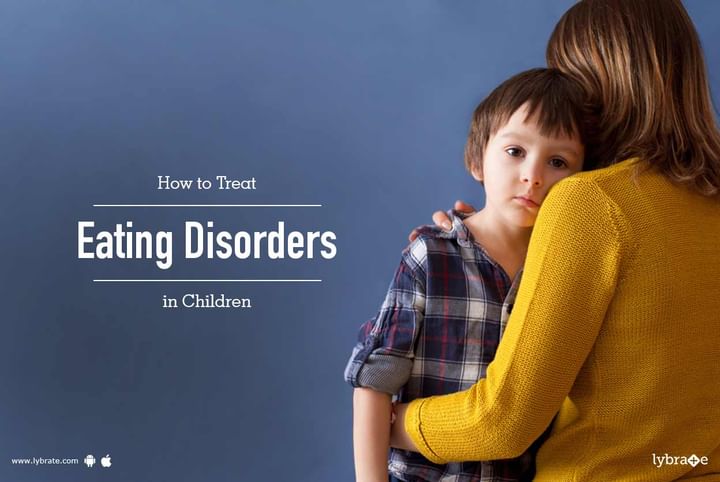How to Treat Eating Disorders in Children
The number of children suffering from eating disorders are on the rise. Change in eating habits, stress, depression, low self-esteem, lack of control in life, anger and loneliness are some of the causes of eating disorders. Some genetic disorders could also be a reason for eating disorders.
Eating disorders may lead to several health conditions which may arise in case of abnormal eating patterns. The common modes of eating disorders in children are as follows:
Anorexia: Children who are affected with anorexia think they are very overweight in spite of actually being very thin. Anorexia affected children consume less than a thousand calories per day.
The treatment for anorexia nervosa generally includes a mix of mental treatment and regulated weight gain program. The best ways to deal with anorexia are:
- Psychological Treatment: Different psychological treatments can be used to cure anorexia of different stages in children. They include cognitive analytic therapy, Cognitive behavioral therapy, interpersonal therapy and focal psychodynamic therapy. A family's response is also an important psychological factor. Proper encouragement and effort should be provided.
- Weight gain program: A weight gain program will guide an anorexic child to improve his diet habits and slowly gain weight. A patient is monitored carefully; the traits are recognized and a diet pattern is given, which is ideal for him.
Bulimia: Bulimia nervosa is another category of eating disorder. The main characteristic of this disorder is overeating in the highest level. Binge eating is observed, followed by attempts by the affected individual to lose weight. A bulimia affected child is constantly trapped in the cycle of overeating and then thinks about losing weight.
In spite of not liking the idea of binge eating for the fear of getting obese, a child affected by bulimia cannot follow this and continues binge eating. Later, they take extreme measures to lose weight. The primary methods to deal with bulimia are:
- Psychotherapy: Psychotherapy or talk therapy includes examining the bulimia and related issues with an expert. It has been proven that psychotherapy restricts the symptoms of bulimia. The three modes of psychotherapy include, Cognitive behavioral therapy, Family-based therapy and Interpersonal psychotherapy
- Medications: Medicines such as anti-depressants can be taken by bulimia patients along with psychotherapy. Prozac is one medicine that can be taken.
- Proper diet plan: For bulimia affected children, having a proper balanced diet is very important. A diet expert should be consulted, who will make the most essential food pattern for the child. Undertaking a weight-loss program is also vital.
Binge eating: Similar to bulimia, binge eating includes out of control eating in huge quantities in a short period of time. The food is not vomited out, and binge eating causes obesity. Intense emotions are experienced in binge eaters. Binge eating in children can be treated with behavioral therapy, medications and psychotherapy.
Eating disorders are quite common in children who are yet to gain maturity.
These disorders may lead to severe health consequences, which may affect a child physically and psychologically. A proper treatment is also essential to deal with these disorders. If you wish to discuss any specific problem, you can consult a doctor.



+1.svg)
